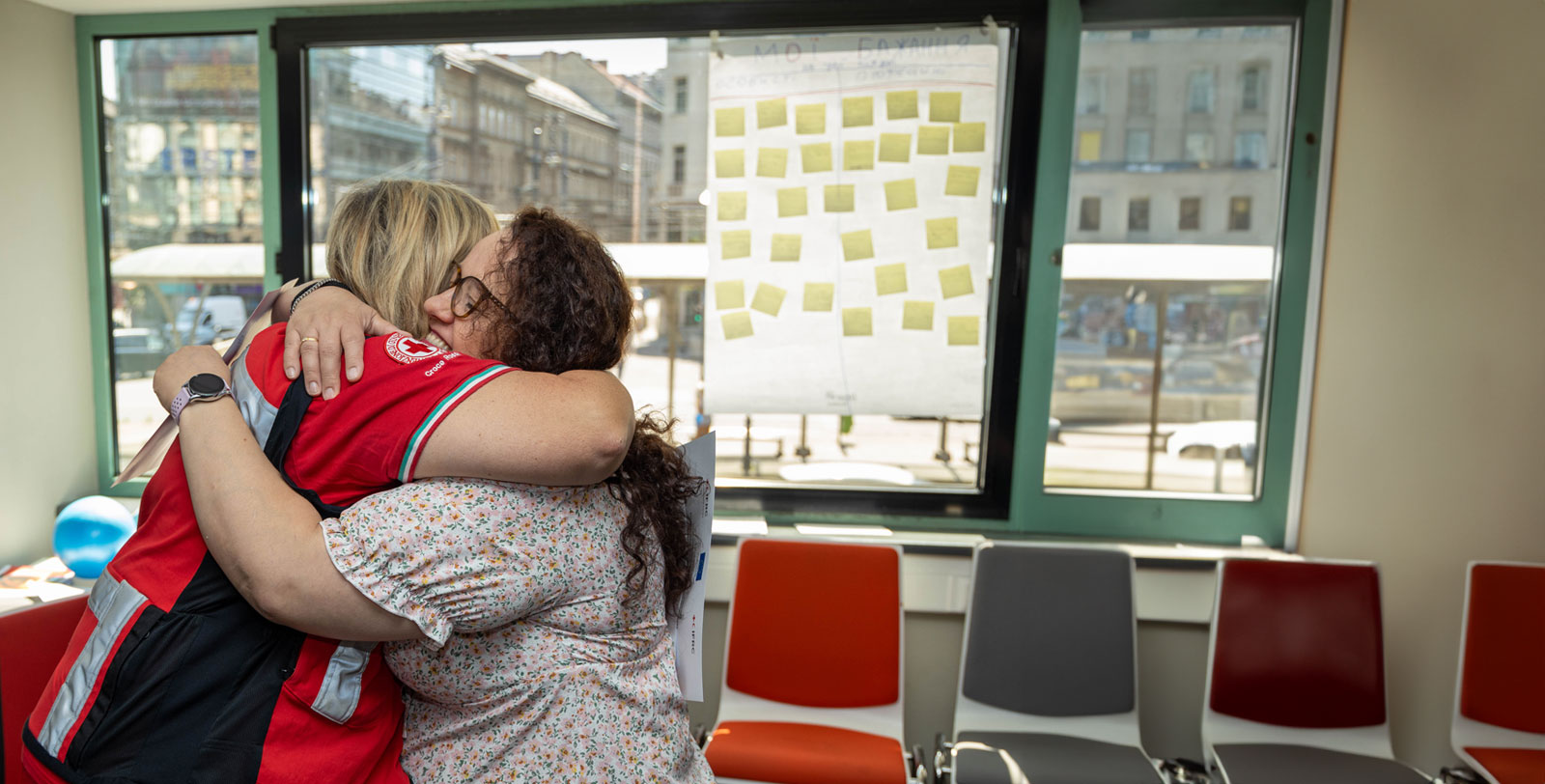We simply can’t talk about MHPSS without knowing how to talk about MHPSS with the languages of the people – the languages of those who are to both give and receive MHPSS. Community-based support should always begin with language and culture – how we talk about things determines how they manifest in everyday life.
- Ahlem Cheffi, IFRC PS Centre MHPSS Technical Advisor
The PS Centre, supported by the MENA MHPSS Network and volunteers from Red Crescent National Societies, has published an Arabic MHPSS vocabulary. The vocabulary contains 547 words in English that have been translated into Arabic through a consultative and consensus-based process. Each English terminology suggests one to five options in Arabic (both classical and modern Arabic). The vocabulary will assist MHPSS practitioners within and beyond the Movement operating in Arabic by serving as the foundation for a common MHPSS language.
Ahlem Cheffi, IFRC PS Centre MHPSS Technical Advisor for the Middle East and North Africa (MENA) region: “We simply can’t talk about MHPSS without knowing how to talk about MHPSS with the languages of the people – the languages of those who are to both give and receive MHPSS. Community-based support should always begin with language and culture – how we talk about things determines how they manifest in everyday life.”
In September 2018, Ahlem came across another insufficient Arabic translation of MHPSS terms. The translations were not incorrect, a better word for the frustrations was that the translations seemed inaccurate or “delocalized”.
Organized by Ahlem, volunteers, and the MENA MHPSS Network which consists of representatives from Red Crescent National Societies in the region and the IFRC MENA Regional Office, set out to create a consensus-based MHPSS Vocabulary in Arabic. It took many months to conduct a broad literature review of MHPSS terms and to discuss where to draw the line between MHPSS and the cross-cutting areas that MHPSS spills into. In the end, they trimmed down from a list of more than 2000 words and agreed upon 547 MHPSS terms in English. The translations could begin.
Ahlem: “The translation work was delegated among volunteers from National Societies from Bahrain, Iraq, Egypt, Syria, and Yemen, and in the end, we decided on a template of three (and in some cases – four or more) options in Arabic per English term, ensuring to cover the specific term in Modern Standard Arabic”.
English – as opposed to Arabic – is a much simpler constructed language. Modern Standard Arabic and spoken Arabic, with more than 30 different dialects, are arguably more complex and diverse. Ahlem and other MHPSS practitioners from the MENA region have often discussed their frustrations with translating specific MHPSS terms from English to Arabic:
Ahlem: “Frustrations caused by the translations are not really caused by English nor Arabic per se, but rather language use, local contexts, and how humans perceive and express reality through language, and we are not trying to start a linguistic debate on language nor the history of where and how MHPSS began to become a real “thing” through language, but most of the MHPSS terms we operate with were birthed and previously defined through Anglo Germanic lenses and therefore perhaps not always sufficient for the needs of the MENA Region.”
A significant aspect of creating and developing an MHPSS vocabulary – in any language for that matter – is the positive side-effect of shedding light on a phenomenon that in many parts of the world is still conceived as something of an allusive and invisible nature – mental health.
Mental health remains highly stigmatized in almost all societal contexts but “creating a common and consensus-based MHPSS language is a strategic way to counter stigmas and simultaneously it also provides ownership, accountability, and empowerment to the respective communities – when one shares a language, you also share a culture of meaning” (Ahlem).
Languages are living entities that change and transform, which means for Ahlem and the MENA region MHPSS colleagues, the vocabulary will need to be updated with new knowledge as it becomes available. For now, the vocabulary is instrumental in improving translation quality and accuracy and streamlining the translation process of text into Arabic and from Arabic into English.
For Ahlem and all the MHPSS Technical Advisors at the PS Centre, the hope is to support MHPSS networks in other parts of the world by developing consensus-based MHPSS vocabularies and glossaries, so they too can share a culture of meaning.
For more information, contact Ahlem Cheffi (ahche@rodekors.dk).



